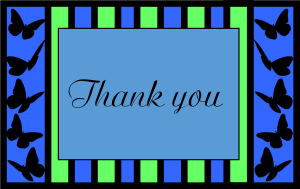It would be difficult to imagine our daily lives without access to oil and oil products. Transportation is one of the most obvious uses of oil, but did you know that many items we use every day are made from oil or its by-products?
Some of these products include:
- Plastics such as food containers, toys, computers and printers, white goods, CD cases
- Synthetics used in items such as clothing, curtains, furniture upholstery, carpets
- Cosmetics such lipsticks, moisturisers, deodorants and antiperspirants
- Nylons used in stockings, ropes, tents, parachutes
- Polystyrene used in cups, coolers, packaging
- Toothpaste, chewing gum, dentures, contact lenses
The list, unlike oil, is almost inexhaustible.

But there is a downside to oil too. Oil spills in the ocean are an enormous issue for marine life. In this Ted talk The Great Penguin Rescue, “the penguin lady” Dyan deNapoli talks about an oil spill that occurred when a ship sank off the coast of South Africa in the year 2000, oiling nearly 20,000 (almost half) of the total population of African penguins, and the efforts made to rescue them.
deNapoli explains that a degreaser used to remove the oil from the pelicans was invented by a 17-year-old boy. How cool is that. She says that more than 1,000 volunteers turned up each day to help with the rescue, and continues
“After half a million hours of grueling volunteer labor, more than 90 percent of those oiled penguins were successfully returned to the wild. And we know from follow-up studies that they have lived just as long as never-oiled penguins, and bred nearly as successfully.”
It is an inspiring story, not only for the penguin rescue, but for the learning deNapoli credits to the rescue. She says,
“Personally, I learned that I am capable of handling so much more than I ever dreamed possible. And I learned that one person can make a huge difference. Just look at that 17-year-old. And when we come together and work as one, we can achieve extraordinary things. And truly, to be a part of something so much larger than yourself is the most rewarding experience you can possibly have.”
deNapoli finishes her talk with the words,
“Humans have always been the greatest threat to penguins, but we are now their only hope.”
I hope you find time to listen to the entire talk. It is what inspired my flash fiction story in response to the prompt set by Charli Mills this week at the Carrot Ranch. Charli challenged writers to In 99 words (no more, no less) write a story that includes oil. It can be an oil refinery, the raw product or used as a commodity. How does oil fit into a plot or a genre? Go where the prompt leads.
Child citizen to scientist
Familiar sounds heralded his arrival: feet scraped stairs, bag thudded deck, screen door crashed.
Shouts of “Mum! Mum!” preceded him as he charged down the hallway, arms flailing, holding something aloft.
His words exploded in a jumble. She deciphered few. Baby stopped suckling, curious.
“Slow down,” she said, patting the sofa with her free hand.
He thrust the brochure at her.
“I wanna adopt a penguin. Please, Mum. Can I?”
“Penguins can’t live here. It’s too hot,” Mum teased.
“Mu-um!” The words tumbled again. “Scientist… school… oil… penguins dying… ‘dangered… We have to save them from going extinct! Please!”
The title Child citizen to scientist refers to the now welcome involvement of citizens in the collection of scientific data, as described, for example, in this article on Fast Company about the collection of pollution data around the BP oil spill in the Gulf of Mexico in 2010.
About 18 months ago, I published a post about a project led by science teacher Cesar Harada who encouraged his students to innovate and problem solve through science. He explained his project in this Ted Talk.
I particularly appreciated Harada’s conclusion about children and their involvement:

Who knows, if my young penguin adopter is encouraged, he may grow up to be scientist too.
For a picture book that introduces children to the concept of caring for our oceans, One Less Fish by Kim Michelle Toft and Allan Sheather is a great starting point. With its beautiful silk paintings, the book helps to educate children about the oceans, the way we pollute them, and what we need to do to protect them and their inhabitants.

If you are interested, there are a number of organisations through which you can adopt a penguin. These are just a few. I’ll leave it to you to investigate your best option. Just remember: you can’t take it home. 😊
Wildlife Adoption and Gift Centre

Thank you for reading. I appreciate your feedback. Please share your thoughts.

